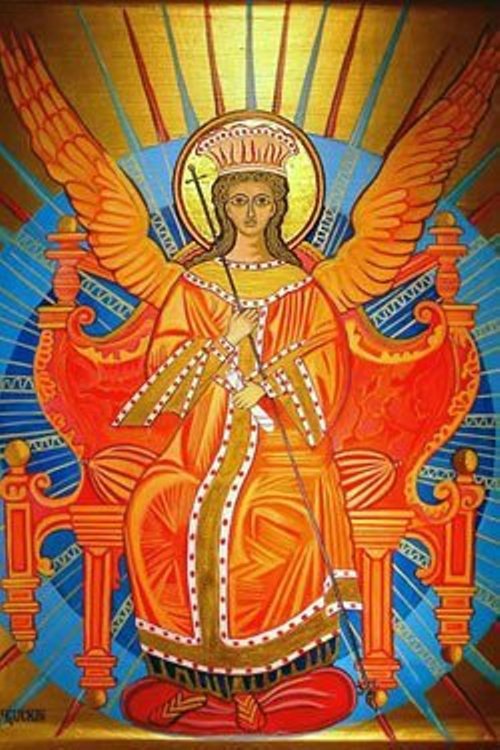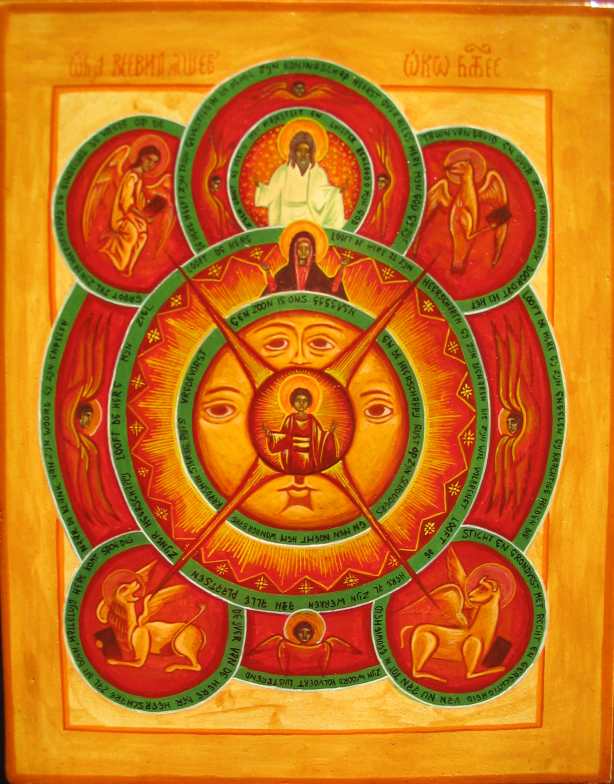On what it is that you're noting, thank you for taking the time to note what you did. It is actually something I've noted to others for some time when it comes to the complexities of the spiritual realm - as it concerns the existence of other gods. On the subject, I am reminded of how
Christ seemed to make clear distinction between how "gods" are used as a term in reference to higher beings and reference to men when using Psalm 82 to speak of himself being Divine based on what the Law said. And as it concerns what Jesus noted in John 10 on "gods", indeed it was not beyond Jewish thought to think that other gods/beings existed. It was actually the minority who worshiped only YHWH. In earliest Judaism, I don't doubt that the people believed in all of the claimed gods of the nations, but they were told to restrict their worship to YHWH. Not that the other gods didn't exist, but that it was improper for them to worship these other deities, since it was YHWH who delivered them from Egypt. If it had been Kemosh who extended his hand and redeemed the people from Egypt, they would have worshiped him instead.
It was not until a later stage in the religious development of the people of Israel that the gods of the other nations turned from "weaker gods" into "no gods at all - only images". The whole point of the Exodus was that YHWH was strong enough to defeat the gods of the Egyptians and to take his people out of their land. If there were no gods in Egypt, what was the point of YHWH showing off? It wouldn't have required much at all, since no one could have offered resistance to him...and in the beginnng, the beings backing Egypt could duplicate some of what God did such as turning staffs into snakes or making blood--though they were still inferior since Moses's staff/snake ate theirs and they could not reverse the plague of blood at all. They could only keep adding more blood. At one point, they realized that God was superior in all ways to the "false gods."
In the mind of the ancient Hebrew people, the "gods" of other nations were real deities. YHWH received Israel as his inheritance, but other gods received other peoples. This is mentioned in Deut 32:8-99, where the nations are apportioned to the sons of the Gods (see the LXX and DSS on these verses, which read ἀγγέλων θεοῦ and בני אל [or בני אלים], respectively, instead of the MT בני ישראל

.
בהנחל עליון גוים בהפרידו בני אדם
יצב גבלת עמים למספר בני אלים\ישראל
כי חלק יהו-ה עמו יעקב חבל נחלתו
When Elyon apportioned the nations, when he separated the sons of man, he established the borders of the peoples by the number of the sons of the gods/Israel, and YHWH's portion was his people,* Yaakov the region of his inheritance.
We see here Elyon apportioning the peoples according to the number of the children of the gods, and each God received a portion among the sons of man. YHWH received Israel as his own inheritance. [The dividing of the nations according to the MT was "by the number of the sons of Israel", which is assumed to be the 70 who went down into Egypt along with Jacob and his household. This is what led to the mistaken belief that there are only 70 nations in the world.]
As it concerns the issue that GOD's in control ultimately/the only one to be worshipped, one can go online/look up for more on what was mentioned earlier on the concept of Monolatry...and for some extra info, here are some excellent resources you can investigate for yourself if choosing to go online/look them up under the following titles:
As one kat said best on the issue:
The belief that only YHVH is an independently effective divine power is de facto monotheistic. It reduces all other supernatural beings to the level of angels, spirits, and the like. Since biblical Hebrew generally continued to use words for "gods" (elim and elohim) to refer to those supernatural beings, whose existence was not denied, we cannot speak of monotheism in the etymological sense of the word but only in the practical, de facto sense just described.
As Albright put it, "Mosaic monotheism, like that of the following centuries (at least down to the seventh century [B.C.E.]) was
practical and implicit rather than intellectual and explicit
The Israelites felt, thought, and acted like monotheists."
Monolatry dealt with those in positions of rulership and Paul even noted that. There was a dualistic thought of the ways in which "god" was seen. For as 1 Corinthians 8:4-6 demonstrates, Paul explicitly grants that there are "so-called gods" in heaven and earth such as the pagans recognized in Greek and Roman mythology. In addition, he mentions the many "gods" (again, a desigination of something) and "Lords" (rulers) who are called such in scripture (Deuteronomy 10:16-18/Deuteronomy 10 ,Psalm 136:1-3/Psalm 136 ), and who in the widest sense represent rulers in the universe who're SUBORDINATE to God ( Colossians 1:15-17 , Colossians 2:15, Hebrews 2:13-15, etc ).
Galatians 4:7-9 also comes to mind, as it concerns the pursuit of devoting oneself to legalism as something that's essentially paganism/worship of "gods...
In pagan culture, those "gods"===especially within Greek culture==were seen as independent/all-powerful as if they were SUPREME Gods to be worshipped. What Paul is teaching is that the "so-called gods" of the pagans are unreal in the sense that they're deified/held as those to be worshipped...and that the real "gods" and "lords", whatever they may be, are all subordinate to the only one supreme God whom alone we recognize.
This is why understanding Hebraic language is so key, as whenever people hear the phrase "there is no god but me", there'll be error if failing to recognize that saying such does not mean that there're no other "rulers/mighty ones" or those in positions of authority in existence----but solely in the sense of others who're worthy of worship or independent in/of themselves.
As seen in verse 6 of I Corinthians 8, the Father is the source (ex hou) of all creation, and Jesus Christ is the dynamic One through whom (di' hou ) creation came into existence. As for the Christian, he lives for God who is the source of alll and has power for so living through Jesus Christ. Consequently, as Paul implies, there should be no concern with idols or meat sacrificed to idols---which is Pauls' larger theme if going throughout the book fully...
For in verse 4, the main thing to remember is that what was occuring was that people were afraid of eating meat offered to idols and Paul had to make clear that the idols before which the meat was sacrificed and the god it represented were actually nothing--that is, nothing as to personal reality and power. Deuteronomy 6:4 , 1 Kings 18:38-, Isaiah 45:4-6 ).
If considering the concept of Psalm 82/The Divine Council, it'd make sense if it was referencing those fallen heavenly beings that fell from their places of authority----beings in which the scriptures say men are foolish for even trying to slander them/speak flippantly on them-----for if they did not do their job and sought to do their own thing, Psalm 82 would be a good description of how the Lord cursed them....
II Peter 2:11
Bold and arrogant, these men are not afraid to slander celestial beings; yet even angels, although they are stronger and more powerful, do not bring slanderous accusations against such beings in the presence of the Lord.
(
Jude 1:7-10
8In the very same way, these dreamers pollute their own bodies, reject authority and slander celestial beings. 9But even the archangel Michael, when he was disputing with the devil about the body of Moses, did not dare to bring a slanderous accusation against him, but said, "The Lord rebuke you!" 10Yet these men speak abusively against whatever they do not understand; and what things they do understand by instinct, like unreasoning animalsthese are the very things that destroy them.
Jude 1:6
And the angels who did not keep their positions of authority but abandoned their own homethese he has kept in darkness, bound with everlasting chains for judgment on the great Day.
- "HEBREW HENOTHEISM" ( //www.class.uidaho.edu/ngier/henotheism.htm )





